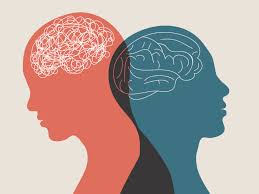By Abujah Racheal
The Federal Government has announced a sweeping series of reforms aimed at addressing Nigeria’s growing burden of neurological and mental health conditions.
The initiative aligns with global health priorities and seeks to bridge the brain health care gap across Africa.
The announcement was made by the Coordinating Minister of Health and Social Welfare, Prof. Muhammad Ali Pate, in a keynote address at the first Africa Neurological Health Summit held on Tuesday in Abuja.
The event was co-hosted by the Brain and Spine Foundation Africa and the Federal Ministry of Health and Social Welfare.
It brought together African health leaders, experts, and development partners to discuss policy and advocacy strategies for improving neurological care on the continent.
Pate, speaking on the theme “Policy and Advocacy in Neurological Healthcare in Africa: Bridging the Gap Towards Achieving WHO-IGAP on Epilepsy and Other Neurological Disorders (2022–2031),” addressed the summit.
Pate, who was represented by Dr Tunde Ojo, National Coordinator, Mental Health Programme, described the event as a turning point in Nigeria’s health reform agenda.
“This summit marks a paradigm shift from conversation to coordinated execution.
“Neurological health is now a national priority, backed by financing, data, and policy action.
“A major highlight of the reforms is the integration of neurological and mental health services into the Basic Healthcare Provision Fund (BHCPF), making essential services more accessible to underserved communities.
“Additionally, neurological and mental health indicators will now be included in Nigeria’s National Health Information Management System (NHMIS), enabling real-time tracking and improved policy decision-making,” he said
He said that following the enactment of the Mental Health Act in 2021, Nigeria developed a new National Mental Health Policy in 2023 and adopted mhGAP 3.0.
He added that the development had allowed mental health services to be integrated into vertical disease programmes such as HIV, tuberculosis, and reproductive health services.
Pate also announced a new tax policy under the Presidential Initiative for Unlocking the Healthcare Value Chain, including waivers on neuropharmaceutical products and raw materials to enhance affordability, support local manufacturing, and strengthen supply chains.
He emphasised the importance of the Sector-Wide Approach (SWAp) in aligning resources, donor funding, and technical support with national priorities, ensuring more effective and accountable healthcare delivery, especially for neurological conditions.
“To build subnational capacity, the Federal Government is currently training state-level Mental Health Desk Officers to plan and coordinate mental and neurological health services, promote sustainability, and ensure responsiveness to local needs.”
The Minister also reaffirmed the government’s push to decriminalise attempted suicide, describing it as essential to a compassionate, rights-based mental health approach.
“Neurological disorders are now the second leading cause of death globally and the leading cause of disability,” he said, noting that stroke, epilepsy, migraines, and dementia are major contributors.
He stressed that achieving a true revolution in brain health required collaboration across all sectors, federal and state governments, civil society, academia, and the private sector.
“We must act decisively. A summit like this must produce actionable recommendations for prevention, diagnosis, treatment, rehabilitation, and governance,” he added.
Prof. Samuel Ohaegbulam, President of the Nigerian Academy of Medicine and Patron of the Brain and Spine Foundation Africa, decried the systemic neglect and infrastructure gaps in neurological care.
He questioned whether neurosurgery was viewed as a luxury in low-income countries.
He also recounted his experience establishing Memfys Hospital in Enugu, the only private hospital in West Africa accredited to train neurosurgeons, which had produced 115 neurosurgeons without government support.
“We can’t always depend on the public sector.
“The private sector has a vital role in building resilient healthcare systems,” he said, advocating for mentorship and purpose-driven leadership.
Former Minister of Women Affairs, Mrs Iyom Josephine Anenih, called for early detection of neurological disorders at the primary healthcare level, urging the government to equip PHCs to identify such conditions before they escalate.
She also stressed the need to decentralise brain health services and integrate neurology into community-based care.
Mr Chika Okwuolisa, Co-Convener of the summit and Executive Director of Brain and Spine Foundation Africa, described her personal advocacy journey, which began after losing her younger sister following multiple brain surgeries and strokes.
“That experience broke me, but it moved me to act,” she said, highlighting that millions of Africans live with treatable neurological conditions yet remained neglected due to poverty, stigma, and policy failure.
“These conditions don’t just claim lives; they devastate families. Brain health is not a luxury, it is fundamental to life,” she added.
She said since 2017, her foundation had supported more than 300 indigent patients with life-saving interventions, conducted public awareness campaigns, and trained caregivers, while also producing hospital readiness assessments for neurological emergencies.
“This summit is not the end. It’s the beginning of a movement to ensure no one in Africa is disabled or dies from a treatable neurological condition simply because they were poor or unheard,” she said.
The News Agency of Nigeria (NAN) reports that the summit, under the sub-theme “Revolutionising Neurological Healthcare in Nigeria,” called for cross-sector collaboration, greater research investment, and public education to address stigma and drive systemic change.
It ended with a unified call for time-bound, concrete commitments to transform brain health from a neglected issue into a mainstream health priority across Africa. (NAN)(www.nannews.ng)
Edited by Abiemwense Moru












